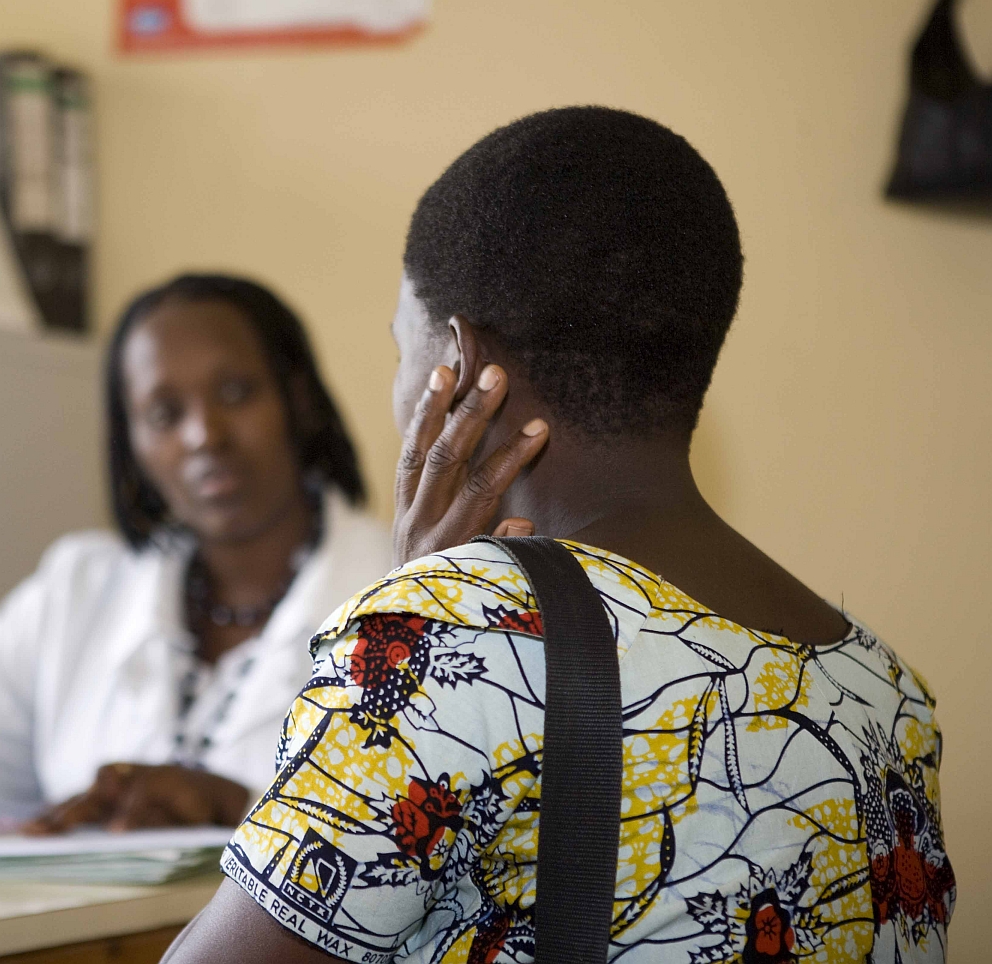
A guest post by Samuel Munderere, Programme Manager at Survivors Fund (SURF) in Rwanda, and coordinator of our work with Foundation Rwanda to support children born of rape.
The price that victims of genocide rape are paying
Every rape is a grave violation of physical and mental integrity. Every rape has the potential to profoundly debilitate, to render the woman homeless in her own body and destroy her sense of security in the world.
Every rape is an expression of male domination and misogyny, a vehicle of terrorizing and subordinating women. Like torture, rape takes many forms, occurs in many contexts, and has different repercussions for different victims. Every rape is multidimensional, but not incomparable. (Rhonda Copelon)
“I was a virgin, innocent, modest, and protected before the genocide…never even kissed a boy…never saw my father undressed.”
Clementine was raped at 14 years when the genocide started; This rape was her first encounter with sex and violence.
“It was the deepest defilement,” she says. She suffered the rape alone and has been traumatized for 18 years. Yet, this is not the only horror she has endured. In addition to the rape, she witnessed the killing of her parents and brother.
After the killings of her family, Clementine had to bury the dead bodies with the help of other tutsi who were brought by the interahamwe (hutu killing squads). They buried her brother who was 19 years old, her father who was 47, and mother who was 41.
While they were burying the bodies, she says, the interahamwe militia was circling around them and saying, “We will kill you as well.” She says that when the Interahamwe saw a Tutsi woman they did not care whether she was young or old.
The killers took Clementine from her home and raped her. She gave birth to a son as result of this rape, who is now 17 years old. But this, she says, is not the most difficult thing. What devastates her most, are the memories her teenage son brings to her, and the fact that she is unable to take her son to secondary school and provide his basic needs.
Children born as a result of rape are seen as difficult to integrate into Rwandan society. They are a constant reminder of what happened during the genocide.
Mothers with children from rape are faced with unspeakable challenges in their day to day life, primarily concerned with the psychological and physical trauma or scars left by the genocide.
“I have lost my self-esteem. And yet I know myself.” Clementine
In Rwanda, the ‘silencing’ of raped women is influenced primarily by cultural norms. Women speak of the need to protect themselves from painful memories, as well as a desire to restore their dignity.
According to AVEGA, (explain who AVEGA is), 67% of women raped in the genocide were infected with HIV/AIDS. There is a need for a more active and coordinated strategy to support victims in the fight against AIDS. Victims of rape and HIV/AIDS have a right to extend their life expectancy through access to treatment.
Donathile, is 34, was raped and deliberately infected with HIV during the genocide. She was just 14 years old. She now often falls sick and is admitted to hospital frequently. Two years ago she became very sick, and went into a coma. Her friends believed she was dead. They, like Donathile, had no money. In desperation, they took the iron sheets from her house and sold them to pay for her coffin and burial ground. Two days later they realized that she was not dead but was in coma. By then, her roof was gone. When she regained consciousness, she no longer had a proper home to live in.
This is the price that HIV widows are paying – dividing their merge resources to cover survival and hospitalization costs.
Survivors Fund (SURF) partners with Foundation Rwanda to support women raped during the genocide to send their children who were born of rape following the 1994 genocide in Rwanda to secondary school, help link their mothers to existing psychological and medical support services and create awareness about the consequences of genocide and sexual violence through photography and new media. Foundation Rwanda currently supports the education of 830 children in secondary school.
An estimated 20,000 children were born from rapes committed during the genocide. Due to the stigma associated with rape, these children and their mothers have been severely marginalized by their communities and are not actively seeking help. No existing government or NGO programs have been created to support their specific needs.
